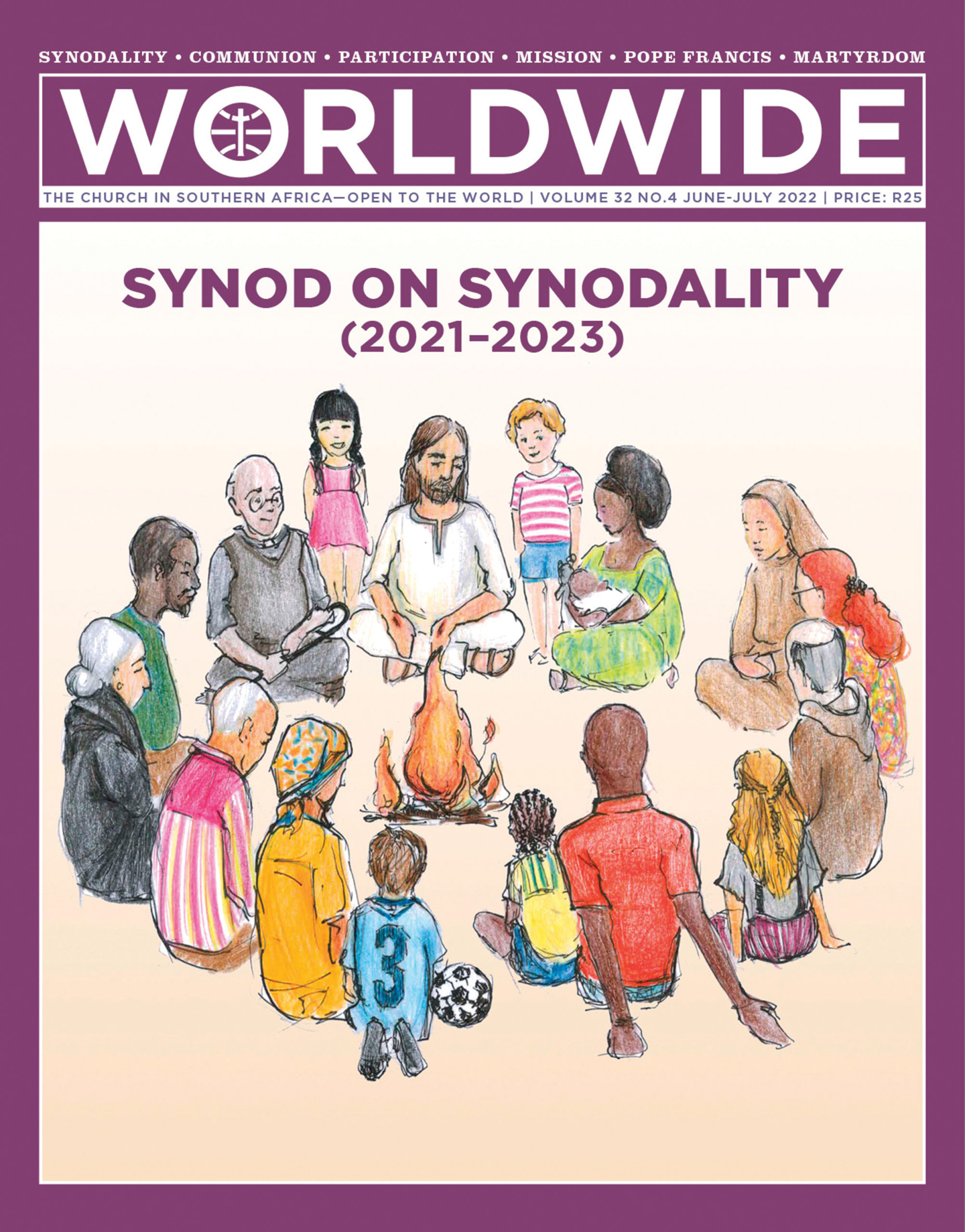
SYNOD ON SYNODALITY (2021–2023)
The cover illustration represents the exercise in which the Church is invited to engage in this process of synodality. Gathered by the Lord and guided by the Holy Spirit, through a journey of prayer, the people of God from all continents, representing diverse ages and kinds of lives, come together to listen to each other, including those marginalized, participating and reflecting on how to be transformed into an inclusive community sent to the mission in the world.
SPECIAL REPORT • LIVING SYNODALITY
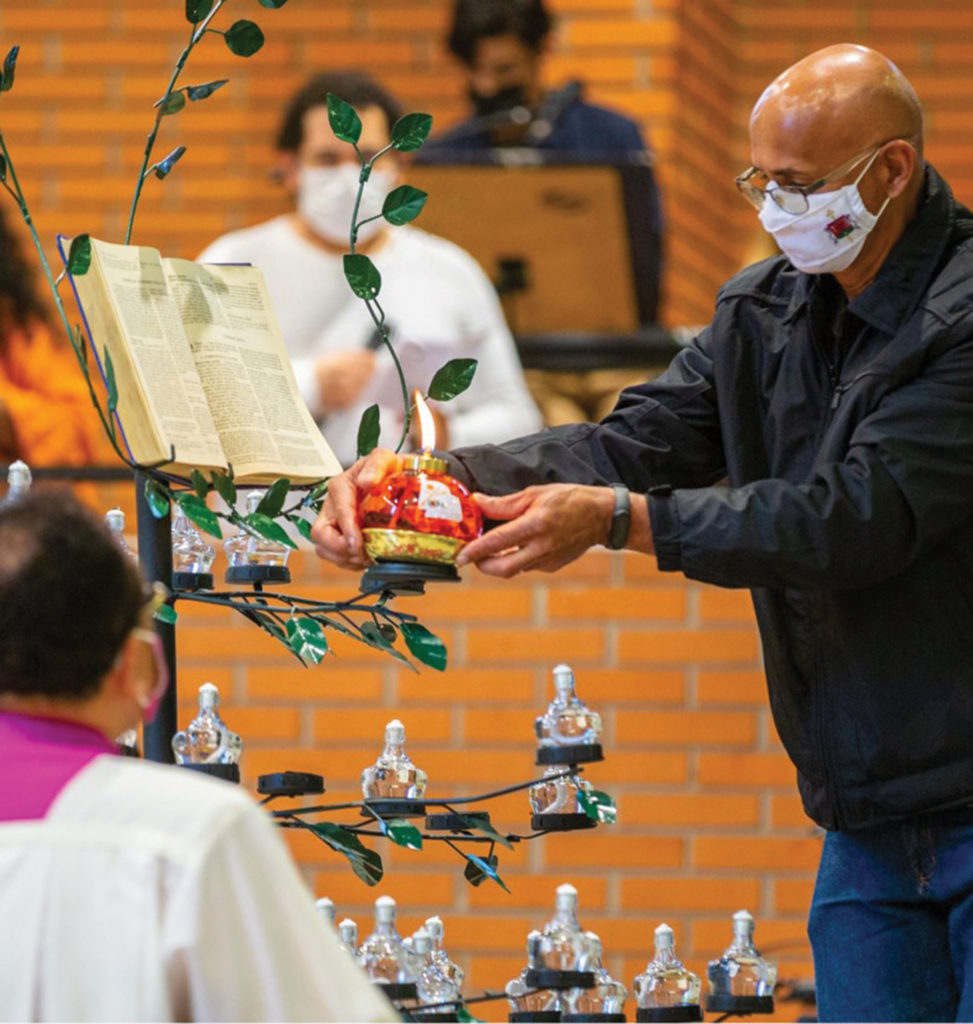
A Call To Walk Together
Since Pope Francis inaugurated the Synod in October last year, dioceses around the world followed suit. It is a new experience because this Synod is held in a ‘new way,’ as it is intended to be carried out first at local and continental levels and, finally, in the assembly of bishops
BY Olga Consuelo Vélez | Doctor of Theology, Bogota, Colombia
SYNODALITY MEANS walking together. It is a word that captures what the Church has been looking for since Vatican Council II with the ecclesial aggiornamento (updating), but above all, with the model of the ‘People of God’ that Lumen Gentium, the dogmatic constitution of Vat II, defined for the Church.
Francis is called the pope of the Ecclesial Spring, precisely because of his efforts to revitalize the Council and recover its fundamental lines, including the proposals for this synodal path: communion, participation, mission.
This invitation to synodality refers to the synodal way of ‘being’ and ‘acting’ of the Church. That is why we ask ourselves in this reflection: what are the conditions for the experience of synodality? What does communion, participation, mission, the objectives of this synodal experience, imply? How is meeting, listening and discerning carried out?
Conditions for living synodality
The Synod on Synodality intends to be an experience to be lived and not so much an assembly to prepare a document. Our premise, then, is the urgency of rethinking the fundamental dignity of all Church members and how to situate ministries within that ecclesial body.
The fundamental sacrament in the Church is Baptism. Through it, we all share in the priesthood, prophecy, and kingship of Jesus Christ Himself. However, in the model of the pyramidal Church, which was constituted and persists until today, the sacrament that is considered most important is that of Order. Thus, the Church is structured in the form of a pyramid, where the bishop presides over it, and after him, all the others follow in descending order: priests, deacons, consecrated women and men, laymen and women.
Two fundamental conditions are therefore necessary to live synodality: that the clergy descend from this pyramid and recover their first and fundamental vocation as baptized persons, and that lay people take ownership of the vocation they have received and develop it fully.
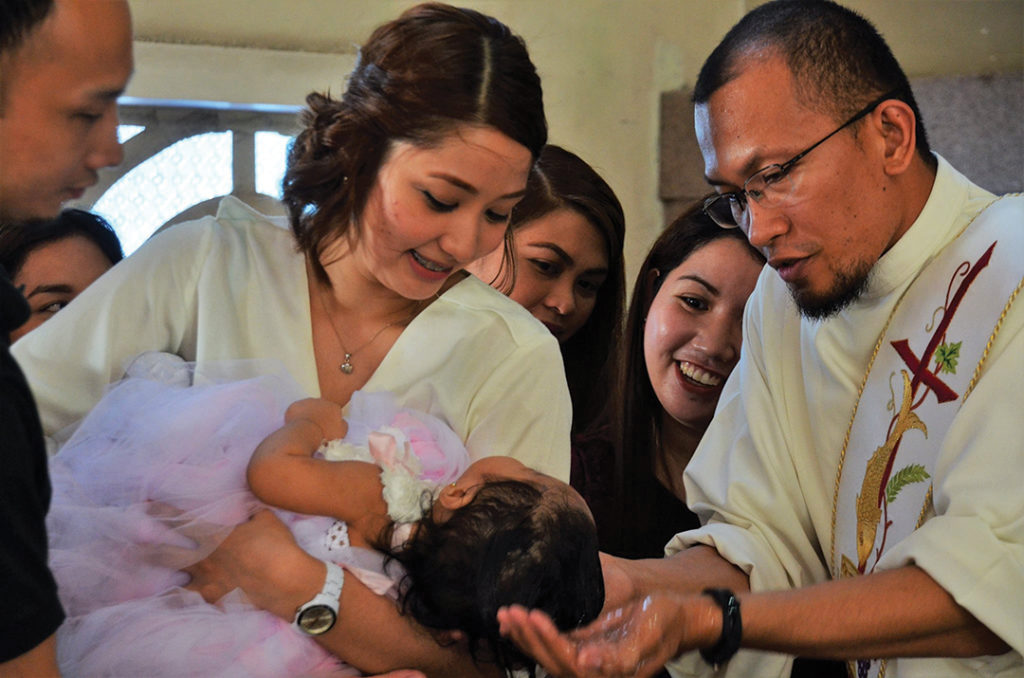
Regarding the first aspect, the Pope insisted throughout his pontificate on the need to put an end to the “recalcitrant clericalism.” He even said that “no one has been baptized as a bishop or a priest.” The image of an inverted pyramid where those who considered themselves at the top must place themselves below, to serve others, is a radical image of the understanding of the ordained ministry: its only dignity is that of service.
This also presupposes an awareness of the sensus fidelium (the sense of the faith of the people of God), which Pope Francis explains in his letter to Cardinal Ouellet (2016), on the participation of the laity in public life: “The holy faithful people of God are anointed with the grace of the Holy Spirit, therefore, when reflecting, thinking, evaluating and discerning, we must be very attentive to this anointing.”
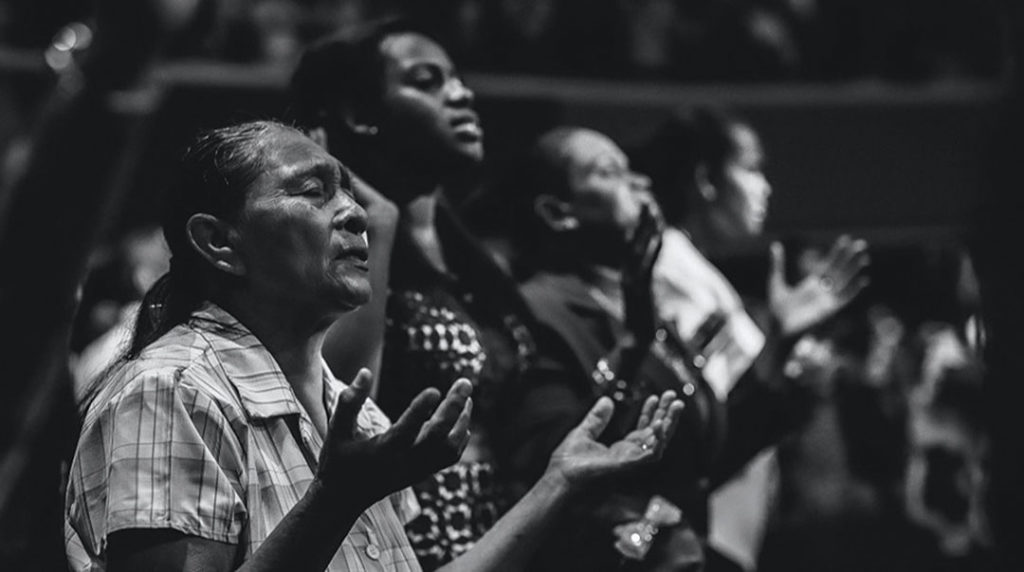
The experience of synodality presupposes that everyone—clergy, lay people and those in religious life—live the fundamental equality of Baptism, share in the same Spirit and are all responsible for the ecclesial journey—naturally, each one with their specific charisms and ministries, always lived for the service of the common good.
Objectives: communion, participation, mission
The synod intends to be a space of communion, participation, and mission, built on the basis of two questions raised in the preparatory document: how does ‘walking together’ allow the Church to announce the Gospel? What steps does the Spirit invite us to take in order to grow as a synodal Church?
These questions are the starting point for the realization of the synodal objectives, insofar as they are carried out with the depth, breadth, and sincerity they demand. The words of the Spanish theologian Cristina Inogés can help to cultivate the attitude necessary to begin this journey: “The best places in the Church are not those that are exclusive and separate, but those that, through service, lead to forgiveness, reconciliation, and encounter. It is good and healthy to correct mistakes, ask forgiveness for crimes committed, and learn to be humble. We will certainly experience moments of pain, but that pain is part of love. We suffer for the Church because we love her.”
Concerning the first question, we need a sincere answer to recognize what was not done. This does not negate that there are also successful synodal experiences, which should be kept in mind when answering this question—each diocese will be able to name its own. However, it is fair to say that, in general, this has not been the most common practice.
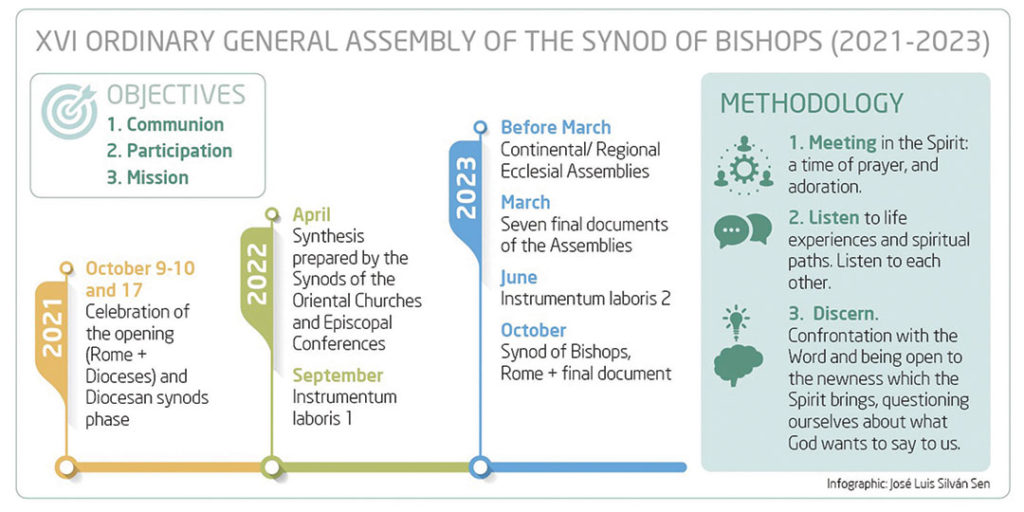
Regarding participation, the synod challenges us to open up to society on a massive scale, especially including those who have not had a voice in ecclesial spaces. Each diocese must exercise its creativity to listen to those who do not participate in the life of the Church and those excluded from society.
The third category, mission, is the horizon towards which we are invited to look at so that the synod can bear fruit for the world. Pope Francis said that we cannot fall into the temptation of formalism, intellectualism, and immobility. We can do many surveys, consultations, questionnaires, meetings (formalism), repeat the doctrine of the Church without descending to life (intellectualism) or conclude that all is well and nothing new will emerge (immobility).
We are called to become experts in the art of encounter and not in organizing events or proposing a theoretical reflection on problems
However, all these temptations can be overcome if we accept Pope Francis’ call to be a Church on the way out, not afraid of being hurt or having an accident: “I prefer a Church which is bruised, hurting and dirty because it has been out on the streets, rather than a Church which is unhealthy from being confined and from clinging to its own security” (Evangelii Gaudium n. 49).
Meet, listen, discern
The main objective of the synod is not to prepare a final document, but to carry out an experience of synodality involving the whole Church and listening to “the concerns and hopes of each Church, people and nation, to the world, to the challenges and changes that it puts before us,” as Pope Francis said at the opening Mass of the launching of the Synod. To carry out this process, which will last until mid-October 2023, the Pope has indicated three actions: meet, listen, discern.
–Meet. It requires attention, time, and availability to meet the other, to allow ourselves to be challenged by their concerns, and even to change our lives. We are called to become experts in the art of encounter and not in organizing events or proposing a theoretical reflection on problems. Meeting in the Spirit: a time of prayer, adoration, fixing ourselves on the faces and words of the other, meeting face to face, letting ourselves be touched by the questions of our brothers and sisters.
–Listen. Listen with heart and not just with ears, so that the other feels welcomed, not judged, free to tell one’s own life experience and spiritual path; allow others to express themselves, not be judged or rejected. “Let us not make our hearts soundproof, let us not shield ourselves in our certainties that close us in on ourselves. Let’s listen to each other.”
– Discern. The attitudes referred to above are aimed at discernment, which implies a confrontation with the Word, emptying ourselves of what has always been done and being open to the newness which the Spirit brings, questioning ourselves about what God wants to say to us now and the direction in which He wants to lead us.
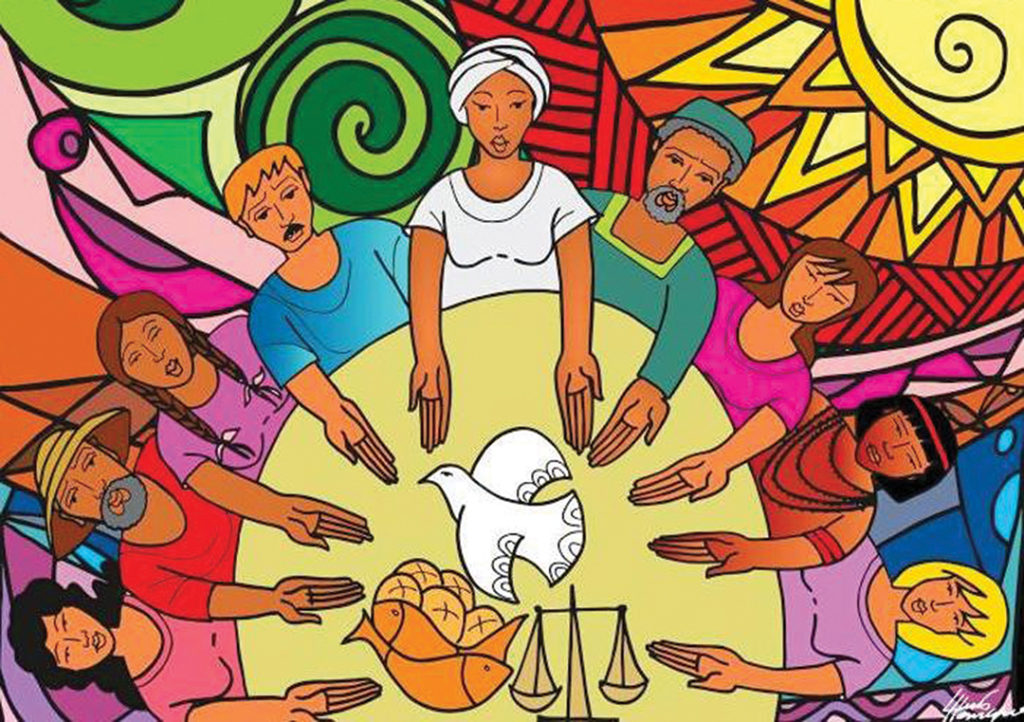
of believers around the table of the Eucharist. Credit: southworld.net
New culture in the Church
The great challenge on this synodal path will be to create a culture of ecclesial consensus, capable of manifesting itself in styles, events, and structures that will give rise to a new ecclesial way of proceeding for the Church of the third millennium. The Synod is an opportunity for pastoral conversion in a missionary key. It is the responsibility of all of God’s people not to miss this opportunity for conversion, renewal, and change.
| Dates To Remember |
|
June 1 – Global Day of Parents 4 – International Day of Innocent Children Victims of Aggression 5 – Pentecost Sunday 5 – World Environment Day 8 – World Oceans Day 12 – World Day Against Child Labour 13 – International Albinism Awareness Day 15 – World Elder Abuse Awareness Day 16 – National Youth Day in South Africa 17 – World Day to Combat Desertification and Drought 19 – International Day for the Elimination of Sexual Violence in Conflict 20 – World Refugee Day 23 – International Widows’ Day 26 – International Day against Drug Abuse and Illicit Trafficking 27 – Micro, Small and Medium-sized Enterprises Day July 3 – International Day of Cooperatives 11 – World Population Day 15 – World Youth Skills Day 18 – Nelson Mandela International Day 24 – World Day of Prayer for Grandparents and the Elderly 30 – International Day of Friendship 30 – World Day against Trafficking in Persons |

you’re really a good webmaster. The site loading speed is amazing. It seems that you are doing any unique trick. Furthermore, The contents are masterpiece. you’ve done a great job on this topic!